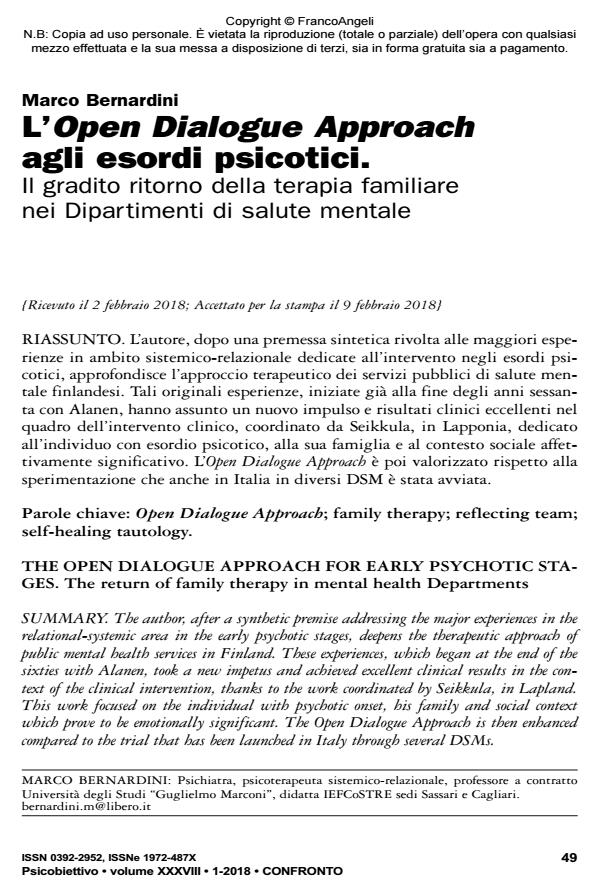The open dialogue approach for early psychotic stages. The return of family therapy in mental health Departments
Journal title PSICOBIETTIVO
Author/s Marco Bernardini
Publishing Year 2018 Issue 2018/1
Language Italian Pages 14 P. 49-62 File size 141 KB
DOI 10.3280/PSOB2018-001004
DOI is like a bar code for intellectual property: to have more infomation
click here
Below, you can see the article first page
If you want to buy this article in PDF format, you can do it, following the instructions to buy download credits

FrancoAngeli is member of Publishers International Linking Association, Inc (PILA), a not-for-profit association which run the CrossRef service enabling links to and from online scholarly content.
The author, after a synthetic premise addressing the major experiences in the relational-systemic area in the early psychotic stages, deepens the therapeutic approach of public mental health services in Finland. These experiences, which began at the end of the sixties with Alanen, took a new impetus and achieved excellent clinical results in the context of the clinical intervention, thanks to the work coordinated by Seikkula, in Lapland. This work focused on the individual with psychotic onset, his family and social context which prove to be emotionally significant. The Open Dialogue Approach is then enhanced compared to the trial that has been launched in Italy through several DSMs.
Keywords: Open Dialogue Approach; Family Therapy; Reflecting Team; Self-Healing Tautology.
Marco Bernardini, L’Open Dialogue Approach agli esordi psicotici. Il gradito ritorno della terapia familiare nei Dipartimenti di salute mentale in "PSICOBIETTIVO" 1/2018, pp 49-62, DOI: 10.3280/PSOB2018-001004